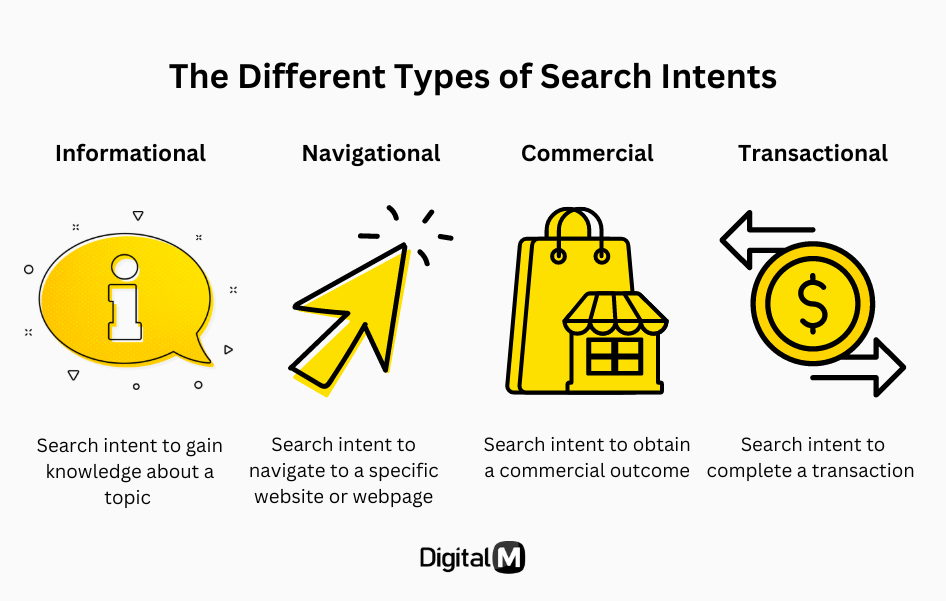Search Intent
Search intent, also known as user intent, refers to the purpose or goal behind a user’s online search query. It reflects the reason why someone is searching and what they hope to achieve or find through their search. Understanding search intent is crucial for search engines and content creators to provide relevant and satisfying results.
Search intent is like figuring out what someone is really looking for when they type something into a search engine. It’s about understanding their goal, whether it’s to get information, buy something, or find a specific website.
Key Points:
User Goals: Search intent focuses on why a user is conducting a specific search—what they want to accomplish.
Types of Search Intent: Common types include informational, navigational, transactional, and commercial investigation.
Types of Search Intent:

Informational Intent: Users seek information or answers to questions. Example: “How does photosynthesis work?”
Navigational Intent: Users want to navigate to a specific website or page. Example: “Facebook login.”
Transactional Intent: Users intend to perform an online transaction, such as making a purchase or downloading something. Example: “Buy iPhone online.”
Commercial Investigation Intent: Users are researching products or services but not necessarily ready to make an immediate transaction. Example: “Best laptops 2023.”
Identifying Search Intent:
Keyword Analysis: Certain keywords may indicate specific intents. For example, “buy,” “how to,” or “reviews.”
Contextual Understanding: Analyzing the context of the search query and the user’s behavior on the search results page.
Importance for SEO:
Search engines aim to provide results that align with the user’s intent, making it essential for SEO to create content that satisfies different types of search intent.
Content Creation:
Content creators use an understanding of search intent to develop content that meets users’ needs and expectations.
Example:
If a user searches for “healthy breakfast recipes,” their intent is likely informational, seeking recipes and ideas for healthy breakfast options.
Why it Matters:
Relevance: Understanding search intent ensures that search results are relevant to what users are looking for.
User Satisfaction: Meeting search intent increases user satisfaction and the likelihood of them finding what they need.
SEO Success: Aligning content with search intent improves a website’s visibility and ranking in search results.
In summary, search intent, or user intent, refers to the purpose or goal behind a user’s search query. Recognizing and aligning with search intent is crucial for search engines to deliver relevant results and for content creators to meet the needs of their audience.

